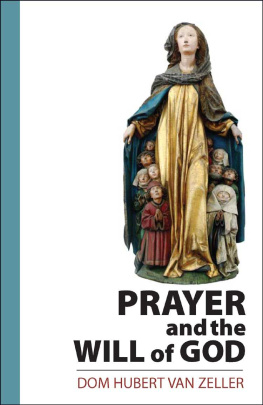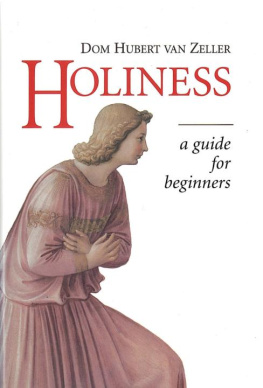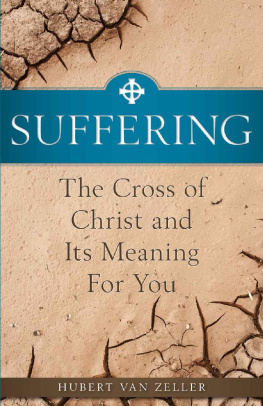
Also available
from Sophia Institute Press
by Dom Hubert van Zeller:
Holiness:
A Guide for Beginners
Holiness for Housewives
(and Other Working Women)
How to Find God and Discover
Your True Self in the Process
A Handbook for Christians

Spirit of Penance, Path to God: How Acts of Penance Will Make Your Life Holier and Your Days Happier was originally published in 1958 by Sheed and Ward, New York, under the title Approach to Penance. This 1998 edition by Sophia Institute Press contains minor editorial revisions throughout the text.
Copyright 1958 Sheed and Ward, 1998 Downside Abbey
All rights reserved
Jacket design by Lorraine Bilodeau
The cover artwork is a detail of The Meal in the House of Simon, by Pierre Subleyras (1699-1749), located in the Louvre, Paris, France. Photo RMNHerve Lewandowski.
No part of this book may be reproduced, stored in a retrieval system, or transmitted in any form, or by any means, electronic, mechanical, photocopying, or otherwise, without the prior written permission of the publisher, except by a reviewer, who may quote brief passages in a review.
Sophia Institute Press
Box 5284, Manchester, NH 03108
1-800-888-9344
www.sophiainstitute.com
Library of Congress Cataloging-in-Publication Data
Van Zeller, Hubert, 1905-
[Approach to penance]
Spirit of penance, path to God : how acts of penance will make your life holier and your days happier / Hubert van Zeller.
p. cm.
Originally published: Approach to penance. New York : Sheed and Ward, 1958.
ISBN 0-918477-87-5 (pbk. : alk. paper)
1. Penance. I. Title.
BX2260.V36 1998
00 01 02 10 9 8 7 6 5 4 3 2

Contents
Editors Note: The biblical references in the following pages are based on the Douay-Rheims edition of the Old and New Testaments. Where applicable, biblical quotations have been cross-referenced with the differing names and enumeration in the Revised Standard Version, using the following symbol: (RSV =).


A spirit of penance is
essential to the Christian life

People are discouraged from approaching penance because they see it from the wrong angle. They think at once of what they will have to do in the way of disagreeable hardship. If they thought of it as turning wholly to God, which is to see it from the right angle, they would be more ready to pursue its implications. They would in fact be spurred on to gather their whole selves together from the four corners of their particular earth and face aboutaway from self and toward God.
The only kind of penitence that is worth anything is conversion. Not only conversion from but conversion to . The penitence that stops short at remorse is not a true conversion, not a complete turn. For remorse to be effective it must be supernatural; it must go on to trust. To turn your back upon sin is one thing, and is a good start, but it will not help you for long unless you turn your eyes toward grace.
Once the soul is truly contrite about sin, and not merely crushed by the guilt of it, there is already a stretching out toward the love that casts out fear. There will still be the holy fear of offending Gods love, but this is not at all the same as the fear that comes of guilt. Where one fear can be the sign of love, the other can be the sign of its absence. Where one leads to hope, the other can lead to despair. Thus, hope is of the essence of penitence; hope is not of the essence of remorse. Penitence assumes also the presence of faiththere can be a remorse that has nothing to do with faith. Remorse is a matter of feeling, a matter of emotional response to certain given facts; penitence is a colder thing altogether, a matter of the will. Penitence can make use of remorse, but has no need to stimulate it. Penitence is a virtue in its own right, strong, realistic, and positive.
Because people confuse the two, drawing upon their own experience of remorse, and having no clear idea of the distinctive element about penitence that links it with the love of God, they view the whole question of penance in terms of external practices of expiation. Faced accordingly with penances to be performed, rather than the disposition of penitence to be cultivated, they draw back.
A man may feel drawn to atone for an act of self-indulgence by an act of self-denial. This is good. This is doing penance. But penance is designed for something more than this. There is a penitential outlook to be acquired, a habit of compunction. Such an attitude of mind may or may not produce acts of physical penanceit will depend upon the attraction of grace and various outward factors, such as obedience, health, state of life. Such an attitude of mind will most certainly deny self.
It is the denying of self that is the substance of penance; the denying of this or that satisfaction may have to come into it will have to come into it the moment the particular appetite involved makes inordinate demandsbut this is simply the way in which penance shows itself. Penance will show itself now in one way, and now in another. The approach to penance lies not in the examination of penances, but in the understanding of the thing itself.
On two counts penances can be misleading. They can be cited as an excuse for avoiding penance itselfthe penance of going against self-willand they can give a false impression to those who feel drawn to deny themselves, but to whom the austerities of the penitential seem out of reach.
True penance is the surrender of the whole self to God. To maintain this surrenderenduring constantly the greater as well as the smaller hardships of lifeis to prove the quality of the original repentance, conversion, and break with sin. The man who can face the idea of surrendering himself to God may have little understanding of what he is undertaking, but at least he is approaching penance in the right way. The man who asks himself if he can take on the hair shirt and the discipline is approaching penance in the wrong way. By concentrating on the outward manifestation, he is in danger of forgetting about the thing itself.
The end of penance is God, not more penances. Thus the approach to penance has to be by way of love, not by way of steeling the will to toughness. Penance must have its roots in charity, not in austerity. Austerity may accompany its growth, but it will be a by-product rather than an essential fruit. A certain austerity will even be a sign of true penitence, but it will not be an infallible sign, nor the only one. The infallible signs are humility and charity.
A false saint can give a good account of himself in the matter of austerity, but no false saint can keep up humility and charity for long. A false saint can shed tears of remorse, but five minutes of true repentance can turn himwithout the shedding of any tearsfrom a false saint into at least the beginnings of a true servant of God. An exfalse saint, knowing all the pitfalls, is well placed in the pursuit of true perfection. With him, as with every neophyte, the condition of progress is surrender.














